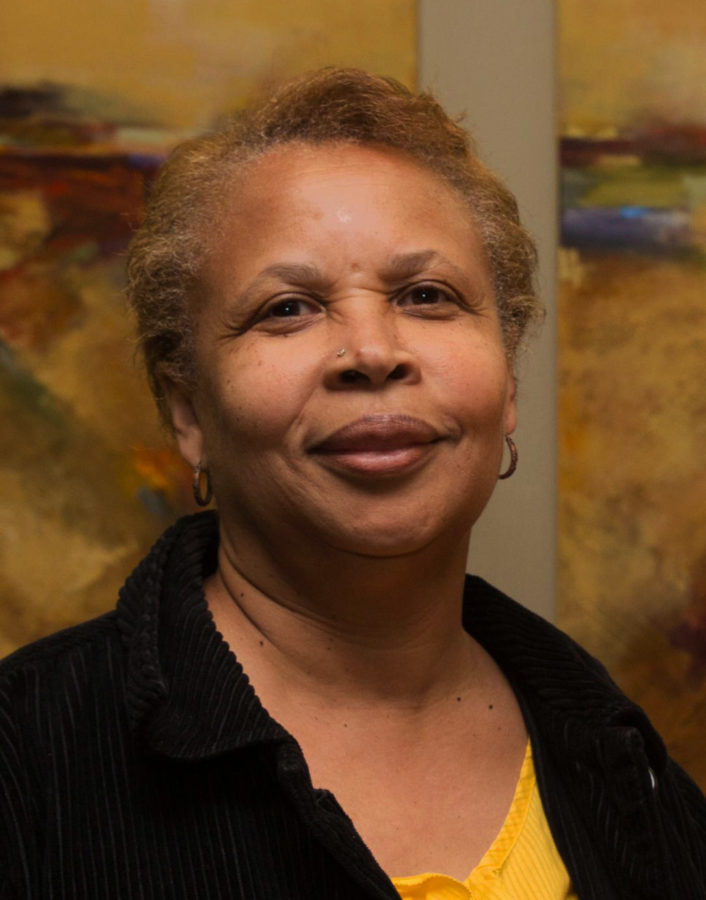Dr. King’s Legacy Series: Rosalyn Broussard
The 50th anniversary of Dr. Martin Luther King Jr.’s assassination is on April 4, 2018. King died in 1968 at the age of 39 in Memphis, TN. It was a turbulent time in America where leaders were assassinated, war was prevalent and America was changing its history. King greatly influenced American Society and used his platform to impact the world.
During this time, University of Wisconsin Platteville’s professor of political science Dr. Rosalyn Broussard was growing up and learning about the world. Broussard now teaches a course on public policy and reminds students that it is important to talk about issues so that changes can happen.
Could you give me some background information on your life?
“I am a child of the South. I was born in the 1950s, came of age in the 1960s, and, growing up in New Orleans, everything was segregated by law. That means that as a child I grew up riding on the back of the bus. I grew up not being able to try on clothes in department stores. I grew up going to black schools under what was known as the Jim Crow laws – rules of the South, and if you were a person of color, you had to follow those rules.”
When and how did you first learn about King?
“I would say I really started learning about this with my fourth-grade teacher Mrs. Clark. She had a small TV she used to keep in her room, and right after lunch, or maybe before lunch, I can’t quite remember, we would have a social studies segment. She would turn on the news and let us see what was going on in the world. As part of our assignment for the next day, we would have to watch, I think it was 15 minutes at that time, national news and write a summary up and come back to school and be able to discuss it within the class.”
What do you think about when you think about King?
“There were a whole number of speeches that he gave, but most people only think about the ‘I Have a Dream Speech’ and only one part of [it]. But one of the things that really stood out for me with King, especially when he was trying to get a poor people’s movement together, was to show people that if you are at the bottom rung of society, no matter what color you were, [everyone was] struggling. He said you would never be able to achieve racial equality until we do something about economic inequality.”
What do you believe to be King’s legacy?
“One of the greatest things about King’s legacy was non-violence. Taking the moral high ground. And to be able to say we are fighting for what is ours. We are not fighting for anything abnormal. As American[s], we are fighting for what we are entitled to, what is laid out in the Declaration of Independence. These are the things the government is supposed to protect, like liberty and a pursuit of happiness. So, one of the things I think he was forcing America to look at is morality.”
What do you think to be King’s biggest impact on activism?
“One of the things I would say is keeping steady. Because it was a movement it could take years. One thing I take away from that is how young King was … 27 years old … You also had a movement called the young people movement. Kids [were] out marching [and] the fire department turned fire hoses on [them]. Those were kids that were walking out of school just like the kids walked out of school yesterday, and the only difference is that in the 1960s, those kids would be rounded up [and] put in jail.
So, you would have little kids coming back who would be in fifth grade who had been out of school for a week, and the teacher would say ‘where have you been Michael?’ ‘I have been to jail ma’am fighting for my freedom.’”
What do you think is left out of the dialogue on King?
“I think it is the complexity of a person. Because King had a family. I would say it was a long struggle and not everybody in the black community was supportive of King. You had some people that thought he was a trouble maker … you had some people who thought he was an Uncle Tom because of the non-violent aspect. But to me, I see him as a great general because he also understood that if you were going to take the moral high ground, since black people had already been painted as violent people, [you] knew then you would be playing into the narrative that has been set up.”
In what ways do you try to advocate or embody the spirit of King’s message?
“[The] messages justice and equality I think I bring it to my classroom constantly. Whether it is racial or gender or class inequality, to present students with other ways of thinking. And to also have students understand that if there, and this is one of the things that King says, if there is injustice anywhere then there is a threat to justice everywhere.”
If you could say/ask anything to King, what would you say/ask?
“Well first thing, I would thank him because he showed that when you give up your life for something, you know there has to be something that you really believe in. I would ask him even though we have come far today, you know, what else, or what polices, would he put in place. Or maybe [I] would run some of my policies by him and say ‘how do you think these policies would work today?’”




